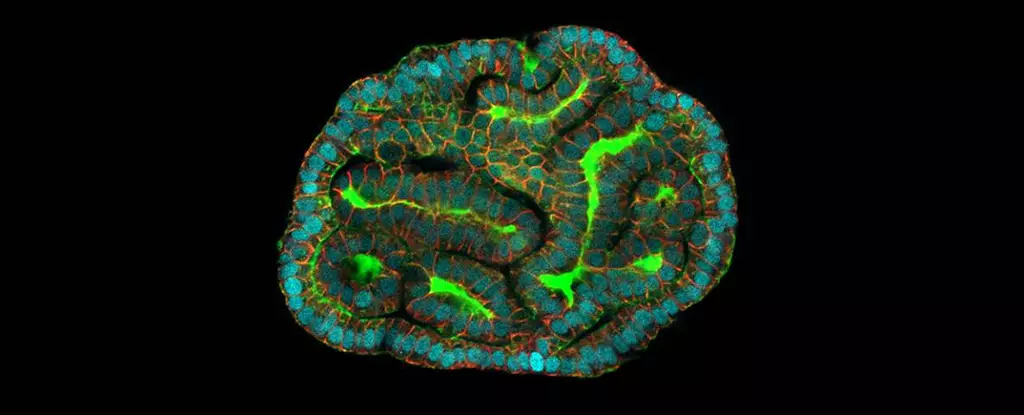In a groundbreaking development, scientists have achieved a significant milestone by successfully growing small yet intricate models of human organs from live fetus cells. This pioneering research not only provides valuable insights into human development but also holds the potential for innovative treatments for prenatal malformations. These organoids, although not exact replicas of organs, closely mimic the real structures, enabling researchers to explore diseases and other aspects of human biology that are challenging to study in living individuals. This remarkable feat was accomplished through a recent study conducted by an international team of experts, where lung, kidney, and intestine organoids were cultivated from viable stem cells found in amniotic fluid.
The utilization of amniotic fluid as a source for growing organoids marks a significant leap in the field of prenatal medicine. Amniotic fluid, responsible for shielding the developing fetus and supplying essential nutrients, is extracted from the mother without causing any harm to the baby during routine pregnancy examinations. According to biologist Mattia Gerli from the University College London (UCL), the organoids derived from amniotic fluid cells display key functions of the respective tissues, including accurate gene and protein expression patterns. This innovative approach enables scientists to investigate the intricate processes of both normal and diseased development, offering unprecedented opportunities for exploration that were previously unattainable.
Ethical Implications and Future Prospects
Unlike organoids grown from terminated fetuses, which are subjected to ethical dilemmas and strict regulatory frameworks, the use of live fetus cells presents a more ethically viable method for organoid cultivation. Furthermore, while organoids can also be developed from adult stem cells, this occurs at a later stage of bodily development. The unique advantage provided by the current research is the ability to study prenatal complications weeks before birth, shedding light on potential treatment strategies. Researchers focusing on congenital diaphragmatic hernia (CDH), a condition associated with respiratory issues, have successfully identified genes linked to the disorder by analyzing organoids generated from fetuses with and without CDH.
The ability to conduct functional assessments of fetal conditions prior to birth signifies a substantial advancement in the realm of prenatal medicine. Pediatric surgeon Paolo de Coppi, also from UCL, emphasizes the significance of this achievement, highlighting the traditional diagnostic methods based on imaging and genetic analyses. The newfound capability to examine fetal organoids opens doors for preemptive interventions, potentially enabling the testing of therapeutic drugs for congenital diseases like cystic fibrosis on organoids before administering them to unborn infants. This proactive approach not only enhances our understanding of fetal development but also offers a glimpse into the future of prenatal healthcare.
While the successful identification of cell types in amniotic fluid and the cultivation of miniature organs signify a major breakthrough, there is still a considerable amount of research and refinement required in this field. The complexity of late human pregnancy poses numerous challenges and opportunities for exploration, sparking excitement within the scientific community. As Gerli mentions, the continuous efforts in unraveling the mysteries of prenatal development present a promising prospect for advancing prenatal medicine and improving outcomes for unborn babies.


Leave a Reply